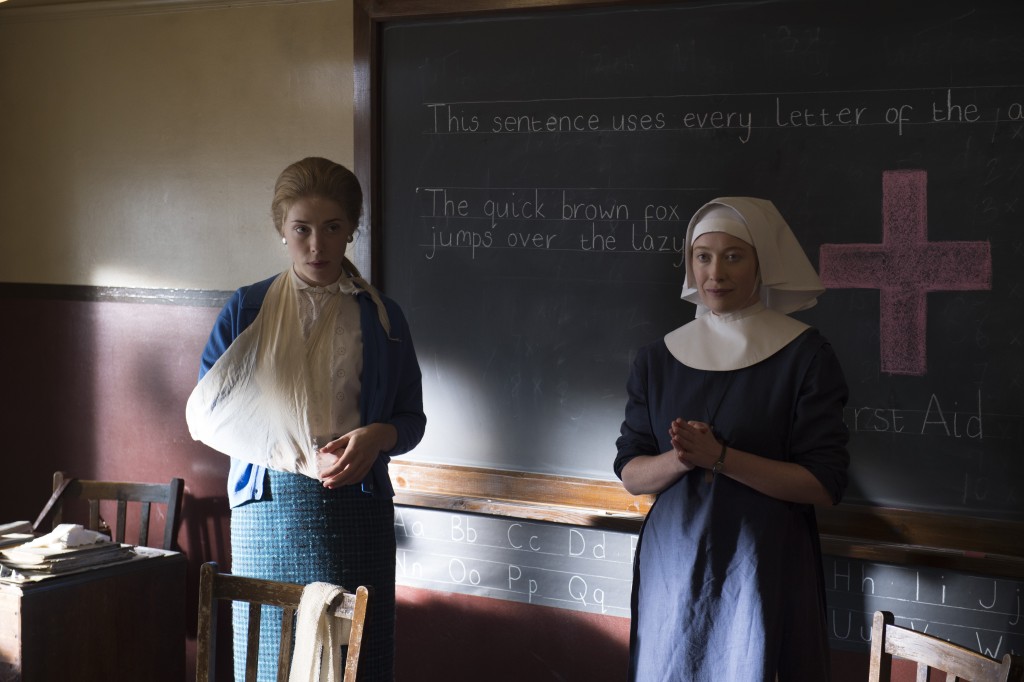Call the Midwife is back for a fifth season and so are the faculty of the Vanderbilt University School of Nursing with a weekly guest blog. Watch the show 7 p.m. Sundays through May 22, then read the blog each Monday morning for historical and contemporary context about the previous night’s episode. SPOILER ALERT: Some posts may contain spoilers.

By Michelle Collins
Vanderbilt University School of Nursing
 Some weekly blog entries are definitely easier to pen than others ‒ this was not one of those. There was a sense of déjà vu watching this episode, as one of the main storylines dealt with elective termination of pregnancy in a time period where the options available for that often caused significant harm, or even death, to the woman.
Some weekly blog entries are definitely easier to pen than others ‒ this was not one of those. There was a sense of déjà vu watching this episode, as one of the main storylines dealt with elective termination of pregnancy in a time period where the options available for that often caused significant harm, or even death, to the woman.
The déjà vu related to Season 3, Episode 3 wherein a mother of eight (at what we today lovingly call “advanced maternal age”) finds herself pregnant again. Living in poverty, in a two-room, rat-infested public housing flat, this woman struggles with the palpable, agonizing realization of what yet another mouth to feed will mean for her family. From a place of sheer desperation, she attempts to abort the pregnancy using the various means available in a 1950s non-legalized abortion environment: herbal preparations given her by the local lay abortion provider; ingestion of Epsom salts and/or turpentine; or even attempting to manually abort the pregnancy using knitting needles.
In this recent episode of Call the Midwife, we find a young, single teacher facing an unplanned pregnancy, the result of an affair with a married man. She eventually loses her job, her partner and even her home as her landlady throws her out declaring, “I run a respectable establishment.” I looked back to my earlier post on this topic and, well, I feel like what I said then still applies here. In that spirit, here goes…
The issue of elective termination has been debated since the dawn of time. Ancient Chinese women used mercury as an abortifacient, while Greek women partook of the herb pennyroyal to induce abortion. Midwives have long stood on both sides of the issue, as well. In the Old Testament book of Exodus, we read about two midwives who had some real moxie for women of their time (considering that disagreeing with the reigning ruler usually bought you a one-way ticket to the executioner). When the reigning pharaoh began to get a bit nervous that the growing Hebrew population was producing too many future warriors who could potentially rise up against him, he called two Hebrew midwives, Shiprah and Puah, to court and commanded to kill male babies immediately when they attended births.
Well, that didn’t sit so well with this God-fearing dynamic midwife duo who blatantly disobeyed the pharaoh. When they were hauled back into his court and questioned about their disobedience, they told a slight white lie and reported that the Hebrew women were unlike the “delicate” Egyptian women; the Hebrew women were hearty and had always given birth by the time the midwives had arrived. Therefore, there was no way to kill the baby at that point and make it look like a stillbirth. Call it naiveté, or the hand of providence, but the pharaoh let them go their own way, and as Paul Harvey used to say, now you know the rest of the story. Exodus records that it is because of their actions that the midwives found favor with God.
As was seen in both of these episodes, nurses, physicians and midwives are often caught in ethical situations in which personal morals and convictions are put to the test. It’s fairly easy, sometimes, to “armchair quarterback” someone else’s life and declare what is right and wrong. When placed smack in the middle of that person’s situation however ‒ amidst the pain, the angst and utter despair – black and white can look a bit grayer.
Michelle Collins Ph.D., CNM, FACNM is a professor of nursing and director of the Nurse-Midwifery Program, at Vanderbilt University School of Nursing.